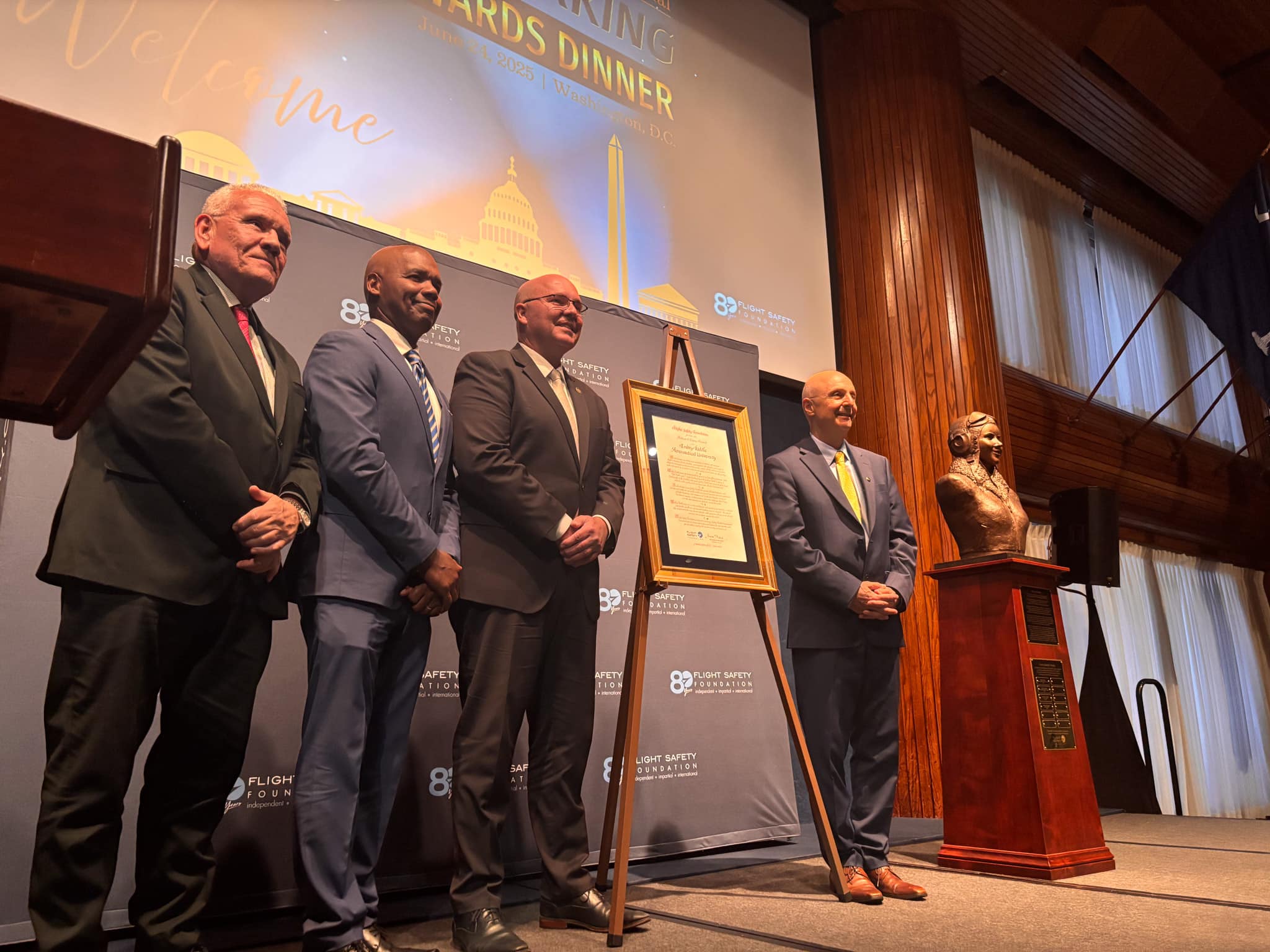Embry-Riddle Receives Prestigious Aviation and Aerospace Safety Award: Flight Safety Foundation Honors University for Innovation and Leadership

Embry-Riddle Aeronautical University has been selected as the recipient of the 2025 Richard Crane Award, a prestigious honor recognizing its decades-long leadership and innovation in aviation and aerospace education.
The award, presented by the Flight Safety Foundation, highlights Embry-Riddle’s contributions to ensuring a safety-focused future for the aviation industry and the global safety of our skies.
In a statement, President and CEO of the Flight Safety Foundation, Hassan Shahidi, commended Embry-Riddle for its impact. “Embry-Riddle has shaped generations of aviation professionals and leaders,” stated Shahidi. “Their legacy of excellence and commitment to the future of the aviation industry makes them a truly deserving recipient of the Richard Crane Award.”
The Richard Crane Award is named after aviation pioneer Richard Crane, who launched the first regional airline in the United States during the 1930s. Crane was instrumental in establishing the Flight Safety Foundation as a global leader in aviation safety advocacy. The award celebrates organizations for sustained corporate leadership and lasting contributions to civil aviation.
Embry-Riddle’s recognition took place during the foundation’s Networking and Awards Dinner on June 24 at the National Press Club in Washington, D.C. Accepting the award on behalf of Embry-Riddle was Dr. Ken Witcher, chancellor for the university’s Prescott Campus.
“Embry-Riddle has long been recognized as a leader in aviation and aerospace education,” said Witcher. “This honor further reflects our dedication to advancing aviation and aerospace safety through innovative research, comprehensive education and strong industry partnerships. We are grateful to the Flight Safety Foundation for this acknowledgement of our efforts.”
The university was recently honored with a prestigious Aviation Week Laureate Award in March at an event in Washington, D.C. Embry-Riddle President P. Barry Butler, Ph.D., expressed that the continued recognition reflects the dedication and hard work of not only the Boeing Center for Aviation and Aerospace Safety, but also the entire university team.
“We are supported by premiere faculty members, and stellar leadership, all of which is reinforced by our esteemed and involved Board of Trustees," Butler noted.
Robert Sumwalt, executive director of Embry-Riddle’s Boeing Center for Aviation and Aerospace Safety and former chairman of the U.S. National Transportation Safety Board, emphasized the importance of safety as an ongoing commitment.
“Safety isn’t a one-and-done activity. You’ve got to continue to flex that muscle and engage in learning and practice to ensure that you’re in the right mindset to prevent issues, and also know how to best address issues when they occur,” Sumwalt remarked, highlighting Embry-Riddle’s steadfast dedication to cultivating a culture of proactive safety and resilience within the aviation community. “Recognition such as this helps us to know we’re moving in the right direction.”
